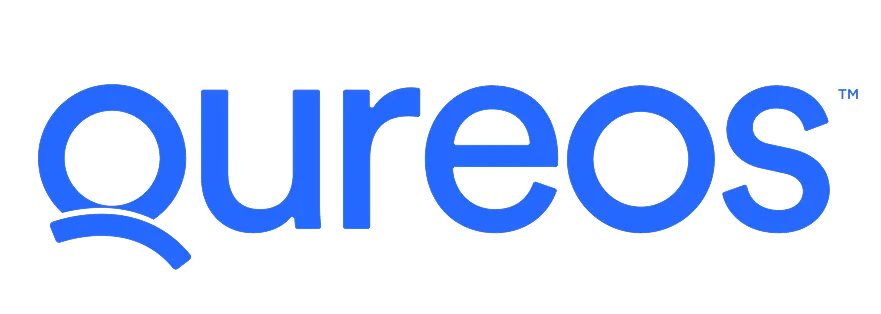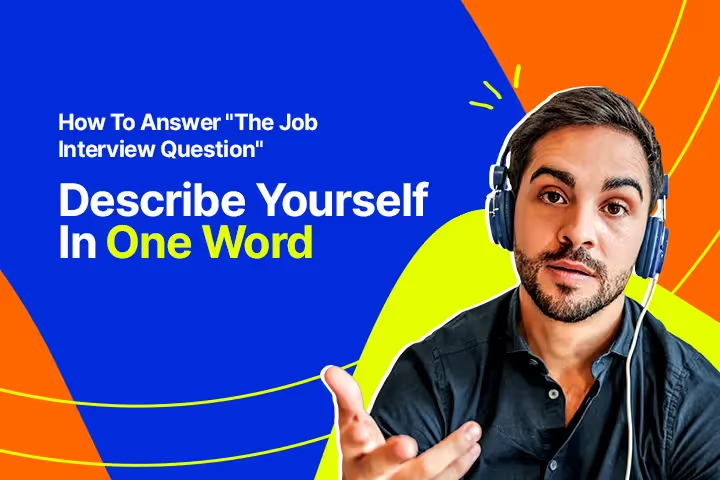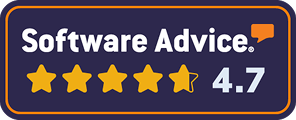Job interviews are exciting and nerve-wracking simultaneously! 73% of job seekers say looking for a job is one of the most stressful situations to experience in life. As an interviewee, you know you’re being judged (literally), but there is an exciting possibility of getting the job by the end of your interview. But preparation is key!
{{quick-link-3="/sandbox/home-v3"}}
Interviews are a great way to:
- Make your best possible impression,
- Negotiate your demands,
- And understand the job, company, culture - and everything you are signing up for!
Here are some interview statistics that could help you be better prepared for an interview and estimate your probability of success!
Key Interview Statistics (2026 - Updated)
Key interview statistics are facts, figures, percentages, and estimates that help you understand different possibilities and situations relevant to an interview - end to end.
Interview Invitation Statistics
- A corporate job opening gets 250 resumes, of which only four to six get shortlisted for an interview. (Zippia)
A resume plays a vital role in getting shortlisted for an interview. You can make a great impression in an interview only if you are called for one. You must put great effort into building the perfect resume. It is highly recommended that job applicants tailor their resumes for the position they are applying for to stand out amongst the 250+ resumes a recruiter will receive.
- Job applicants get approximately one interview call for every six applications they complete. (Zippia)
Filling out job applications, especially the super long ones, takes a lot of work. Completing an extensive job application shows commitment and seriousness for the role. The more job applications you complete, the higher your chances of getting an interview, and as mentioned above, every applicant gets one interview call for every six applications they complete. Remember to be thorough and honest while filling out the applications.
- 60% of hiring managers and recruiters use video interviews to streamline hiring. (Forbes)
The advent of the internet has really changed how hiring and applying for jobs works. Video interviews did exist previously, but since COVID-19, video resumes and video interviews have become increasingly popular. Almost 60% of recruiters and hiring managers leverage online tools to conduct video interviews. Lucky for you, you can take them from a comfortable location without spending any money commuting and even interviewing for jobs far off!
Also, you could be wearing shorts under that dress shirt, and the interviewer will never know!
- 84% of the candidates schedule an interview within 24 hours of receiving an invite. (Modern Hire)
Getting an interview is a huge win in itself, and job applicants normally schedule one with interviews within 24 hours. So, if you get an interview, quickly book an interview slot as it shows excitement and promptness.
- 61% of senior executives claim the best interview time is between 9 AM and 11 AM. (Teamstage)
Almost 61% of interviewers and employers believe that the morning is the best time to conduct an interview. They believe that between 9:00 a.m. and 11:00 a.m., both parties involved are more alert, productive, and responsive.
- Referrals are 5x more effective than all other means of hiring (LinkedIn)
A referral offers the advantage of getting extra attention from the recruiter, especially if the referral is made by an existing employee at the recruiter’s company. If you don’t have a referral, ace your interview so the applicants with a referral don’t stand a chance in front of you!
Interview Communication Statistics (2026 - Updated)
- On average, a job interview lasts about 40 minutes. (Glassdoor)
The nerve-wracking time for the interview lasts less than an hour, almost 40 to 45 minutes. You must be mentally present, active, and responsive throughout this time to make the most out of the interview and maximize your chances of getting the job!
- Phone interviews usually last approximately 15 minutes. (Zippia)
Phone interviews are usually simpler and do not go on to complex or behavioral questions. On the phone, it is very unlikely that the interviewer will ask about the time you solved a conflict. However, these 15 minutes are still crucial for you to present yourself best and maximize your chances of a follow-up interview.
- Interviewers typically form an opinion about a candidate within the first 7 minutes of the interview. (Indeed)
They say the first impression is the last! The first few moments of the interview are crucial because this is when you make your first impression, capture the interviewer’s attention, and give them something to keep the interview going!
Protip: Try to dress nice, be hygienic, sit upright, and wear a smile! A pleasant appearance makes an impression even before you start conversing!
- Non-verbal communication accounts for approximately 55% of communication during an interview. (University of Texas)
Your communication is not just words but also your expressions, body language, posture, eye contact, and more! Nonverbal communication is equally important in an interview, and you must pay close attention to your non-verbal communication and maintain professional conduct.
Interview Assessment Statistics (2026 - Updated)
- 70% of employers use social media to screen candidates during the hiring process. (Linkedin)
Most employers are interested in the overall profile of job applicants. Companies want the best talent and ensure the people they hire are a cultural fit for the organization. For this reason, many companies conduct a social media screening of their potential employees.
- Approximately 85% of employers have caught applicants lying on their resumes or job applications. (Workforce)
Giving an interview might be a recent experience in your life, but for the hiring manager, it is a routine procedure. Recruiters spend two-thirds of their overall hiring time on the interview process.Many people lie on their resumes, and the employers immediately find out! Whether it is a fake experience or a false certification on the resume, the interviewer knows how to ask subtle questions to gather your learnings from the listed experiences. The key is to be honest in your resume and your interview.
- 90.6% of employers prefer their candidates to have work experience (Legaljobs)
Showcasing relevant work experience is an integral part of an interview. As an interviewee, it is significant to relate your experience to the job description of the position you are interviewing for. The idea is to show how your experience makes you the ideal candidate for the role!
- 71% of employers consider the appropriate dress code a critical factor while evaluating job candidates (Softspace)
Interviewers and employers assess candidates on how they are dressed! Unless you are applying for a fashion position, the brand or aesthetics of your clothing hardly matters. The key is to be clean, professionally dressed (preferably in muted, earthy tones), appropriately covered, and overall aligned with everyone else in the organization.
- 39% of job seekers leave a bad impression due to confidence, voice quality, or lack of a smile (Jobspin)
As discussed earlier, non-verbal communication is a vital point of assessment for employers and interviewers. As an applicant, you must maintain positive body language, including pleasant expressions, smiling, confidence, and speaking at the right speed and volume.
- Only 41% have received interview feedback before (LinkedIn)
Feedback is a great way to learn how to improve. Although only some companies/employers have a feedback system, asking is still important. Suppose you think your interview went great but have yet to get an offer; ask for feedback to improve your performance in future interviews.
Interview Success Statistics (2026 - Updated)
- The average time from an interview to a job offer is between 20 and 40 days (Algrim)
Once you have given the interview, be patient! Avoid flooding the employer's inbox or messaging them on social media. Employers need some time to assess the performance of all interviewing candidates and will get back to you with a response within the next two weeks or more. Although, if you are still waiting to hear back from the employer after 3 weeks, it is okay to send a follow-up email.
- High-quality candidates only have to wait ten days to find a new job (Workonic)
Candidates with the most suitable profiles and just the right interview can hear back from the employers within ten days. Although the hiring process takes three to six weeks to complete, the best candidates experience a quicker turnaround time.
Interviewer Do’s and Don’ts
- 60% of recruiters say they regularly lose candidates before scheduling an interview. (Yello)
A poor job description with insufficient details of the role or compensation can often make employers lose great candidates before they can shortlist them. Job postings must have all the relevant information to give applicants the necessary information. The JD generator by Qureos is a great tool for creating the perfect job description for any role!
- 60% of job seekers quit while filling out online job applications because of their length or complexity (G2)
As an interviewer, your goal should be to make the application process easier. Long application forms with too many supporting documents will reduce your chances of getting a maximum number of candidates by 60%.
Interviewee Do’s and Don’ts (2026 - Updated)
- The most common interview mistakes made by job applicants include not asking good questions (38%), talking too much (33%), and appearing disinterested (32%). (CareerBuilder)
As an interviewee, you must maintain balance. Talking too much and talking too little can both lead to leaving a bad impression on the interviewer. Avoid being too chatty, super quiet, or not asking any questions. Asking questions makes the interviewer feel like you have done your research and want to make an informed decision.
- 40% of interviewers simply did not consider candidates for their lack of a smile. (Twin)
Having a warm attitude goes a long way. A smile is the very first step to set the tone for a comfortable interaction.
- 65% of interviewers did not hire candidates that failed to make eye contact. (Twin)
Interviewers state that a candidate’s body language plays a pivotal role in their assessment during an interview. 20% of recruiters agree that candidates who sit with their arms crossed during an interview are not considered for the role, whereas 50% of interviewers agree that many candidates are rejected solely on how they dress, act, or even walk through the door.
Pro Tip: The key is balance; do not overdo or underdo it! Smile politely, but do not be extremely chirpy, and appear confident but not arrogant.
Conclusion
Interviews may have evolved over the years but have remained a constant practice in the hiring process. Interviews are vital for employers and recruiters to assess potential employees for the usual criteria like education and experience skills. Still, they are also extremely significant in assessing soft skills, behavior, and overall personality. 40% of interviewers agree that a candidate's overall confidence affects their hiring decisions. Hence, job applicants must remember what the stats say about interviews and align their preparation accordingly to maximize their chances of success!











